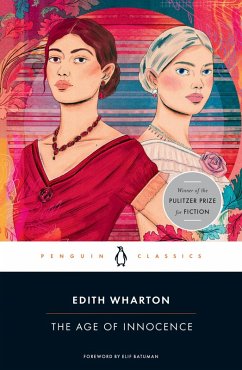Edith Wharton's masterpiece brings to life the grandeur and hypocrisy of a gilded age. Set among the very rich in 1870s New York, it tells the story of Newland Archer, a young lawyer engaged to marry virginal socialite May Welland, when he meets her cousin, Countess Ellen Olenska, a woman unbound by convention and surrounded by scandal. As all three are drawn into a love triangle filled with sensuality, subtlety, and betrayal, Archer faces a harrowing choice between happiness and the social code that has ruled his life. The resulting tale of thwarted love is filled with irony and surprise, struggle and acceptance. Recipient of the first Pulitzer Prize for fiction ever awarded to a woman, this great novel paints a timeless portrait of "society” still unmatched in American literature—an arbitrary, capricious social elite that professes inviolable standards but readily abandons them for greed and desire.
Dieser Download kann aus rechtlichen Gründen nur mit Rechnungsadresse in A, B, BG, CY, CZ, D, DK, EW, E, FIN, F, GR, HR, H, IRL, I, LT, L, LR, M, NL, PL, P, R, S, SLO, SK ausgeliefert werden.
Wharton is not generally viewed as one of literature s great optimists, and yet, by the last chapter of The Age of Innocence, people are a little less hypocritical, a little more willing to see and accept the world. ... A larger life and more tolerant views: that s the greatest promise the novel holds out to us, and it s as necessary now as it was when Edith Wharton put it into words.
Elif Batuman, author of The Idiot, from the foreword
Will writers ever recover that peculiar blend of security and alertness which characterizes Mrs. Wharton and her tradition?
E. M. Forster
Elif Batuman, author of The Idiot, from the foreword
Will writers ever recover that peculiar blend of security and alertness which characterizes Mrs. Wharton and her tradition?
E. M. Forster

